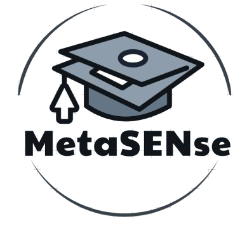 Publications for the project Raising educational outcomes for students with SEN and disabilities (MetaSENse)
Publications for the project Raising educational outcomes for students with SEN and disabilities (MetaSENse)
MetaSENse is a project funded by the Nuffield Foundation. The project carried out a systematic review and meta-analysis of the effectiveness of interventions aiming to improve educational abilities for different children with special educational needs and disabilities (SEND), to understand what works best for which children in which settings. This page contains information on publications from the project.
Publications and preprints
Title: Raising educational outcomes for students with special educational needs and disabilities: A systematic review and meta-analysis
Authors: Jo Van Herwegen, Thomas Masterman, Julie Dockrell, Chloe Marshall, Rebecca Gordon & Michael S.C. Thomas
Abstract: This systematic review and meta-analysis examined randomized controlled trials and quasi-experimental design studies targeting interventions to improve educational outcomes (reading, writing, mathematics, science, and general attainment) for students with SEND. It identified 467 global studies with 2,891 outcomes and 349 studies or 1,758 outcomes were included in the meta-analysis, which related to reading (n = 1139), writing (n = 279), maths (n = 284), science (n = 3), and general attainment (n = 53). Targeted interventions for specific SEND groups improved educational outcomes by an average of five months compared to control groups, with positive impacts on reading, maths, and writing. The setting (mainstream vs. special education) did not affect reading or writing outcomes, but mainstream students showed larger gains in maths. Intervention effects were consistent regardless of delivery method, implementer, or control group type. The review discusses the impact of the findings as well as the research gaps, and methodological issues.
Preprint link: OSF link
Title: Raising Educational Achievement for Students with Special Educational Needs: Educational practitioners’ perspectives on evidence-based interventions
Authors: Catherine Antalek, Julie Dockrell, Michael S.C Thomas, Thomas Masterman, Rebecca Gordon, Chloe Marshall & Jo Van Herwegen
Abstract: The prevalence of students with Special Education Needs and Disabilities (SEND) is rising, emphasising the importance of evidence-based interventions to support their educational progress. However, how educators use evidence to guide their intervention approaches, and the role of school context, remains unclear. Semi-structured interviews were conducted with 32 primary and secondary educational practitioners in England from a variety of school types (mainstream and specialist provision). Participants were asked to reflect on the intervention strategies they employ to support students with SEND, the factors shaping their intervention choices, and the types of evidence they use to implement and assess the effectiveness of these strategies. Findings indicated a limited awareness of rigorous scientific methodologies like randomised control trials. Instead, most relied on personal experience or word of mouth as evidence of effective interventions. Participants preferred designing their own interventions or using flexible, piecemeal approaches rather than standardised methods. School type and level impacted intervention choices, with primary and specialist schools favouring flexible interventions with short, frequent sessions, and secondary and mainstream schools prioritising easy-to-train programs, often constrained by cost and resources. Intervention fidelity was influenced by student characteristics, resources, and training. These findings highlight current practices and suggest areas for improving SEND support. Practical implications are discussed.
Preprint link: OSF link
